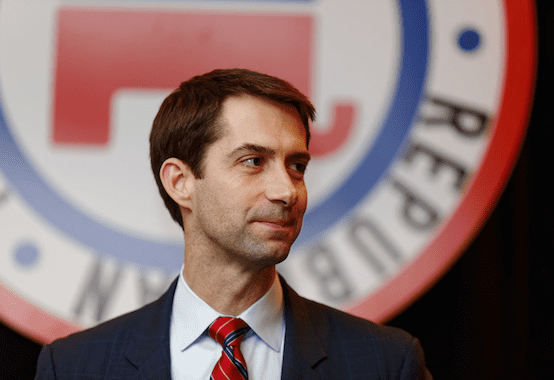The Stupidity of Quitting the Open Skies Treaty

Tom Cotton is a hard-line opponent of every arms control agreement, so it will not surprise anyone that he is leading the charge to abandon the Open Skies Treaty as well:
President Trump should end this charade by withdrawing from the treaty and diverting the hundreds of millions of dollars it wastes to valuable military projects.
Cotton’s case against the treaty is exceptionally weak, and it relies on falsely portraying the treaty as a giveaway to Russia. He ignores or dismisses the benefits that the U.S. and our allies get from the treaty, and feigns interest in saving money when there is almost no one more willing to throw money away on unnecessary military spending than he is. He exaggerates the significance of minor Russian violations and then uses them to argue for scrapping a stabilizing treaty that has been a great success for decades. Cotton’s complaints about minor violations are of a piece with his usual nitpicking about arms control and nonproliferation agreements. The specific complaints are always just a pretext for him to demand an end to the entire agreement. Cotton is an arsonist of arms control agreements who pretends to be a safety inspector. The moment he sees a fixable problem, he declares that it’s time to burn the entire place down.
Mary Chesnut and Robert Farley recently made a strong case for keeping the Open Skies Treaty:
The Open Skies Treaty, however, represents a low-cost answer to an age-old problem of international security, providing a mechanism for monitoring deployments of military forces and providing assurance to vulnerable nations. Discarding the treaty would represent a surrender to anti-arms control fetishism, rather than to a careful assessment of the security interests of the United States.
Anti-arms control fetishism sums up Cotton’s position very well. He pretends to fault existing agreements for their supposed shortcomings, but he really just wants to dismantle the agreements and looks for excuses to do it.
Leonid Bershidsky addressed another one of Cotton’s arguments a few weeks ago. Cotton maintains that the U.S. can gather all the information it needs through satellite reconnaissance, but Bershidsky explains why that isn’t as useful as keeping the overflight rights granted by the treaty:
Ryzkov wrote that between November and March, the area around Moscow, for example, has too much cloud cover for satellite photos to be useful, while an Open Skies surveillance plane can fly below the clouds, just 1,000 meters above ground. Besides, planes “enjoy much more flexibility in choosing flight paths,” as arms control experts Alexandra Bell and Anthony Weir wrote in a recent article defending the treaty. They continued: “The three to four days’ warning that observed countries get before a satellite overpass gives them ample time to move military assets. Treaty flights provide only 24 hours’ notice, increasing the odds that overflights capture an accurate assessment. Planes can also double back to provide a more comprehensive set of images than fixed-orbit satellites can.”
Cotton doesn’t even acknowledge this advantage of the treaty, because it would show how ridiculous his entire argument is if he admitted this. He whines about Russian restrictions of flight paths in a couple places, but doesn’t recognize the advantages of having virtually unlimited access to their airspace on short notice. Instead he calls the flights “a redundant capability,” which is completely false. The restrictions that Russia has put on flights over Kaliningrad have already been dealt with by imposing reciprocal restrictions on Russian flights over parts of the U.S. Bershidsky continues:
In the case of Kaliningrad, Russia insists the restriction is meant to keep surveillance planes from zigzagging back and forth and disrupting civilian flights — not much of an excuse but not really a deal-breaker. Besides, the U.S. has responded by not letting Russia fly over certain militarily important areas of Alaska and Hawaii. That’s adequate retaliation that hasn’t, however, led Russia to renounce the treaty.
Cotton asserts that “the Open Skies Treaty no longer serves to reduce tensions or build trust,” but every other member of the treaty disagrees with him and so do American arms control experts. Trashing the Open Skies Treaty would be bad for the U.S., bad for our European allies, and bad for international stability. Doing this in conjunction with letting New START die would be even worse. Trump has already signaled that he intends to withdraw from one treaty and it is likely he won’t extend the other one. If he does those things, he will be doing real harm to U.S. interests thanks to the advice of fanatical ideologues.
Comments